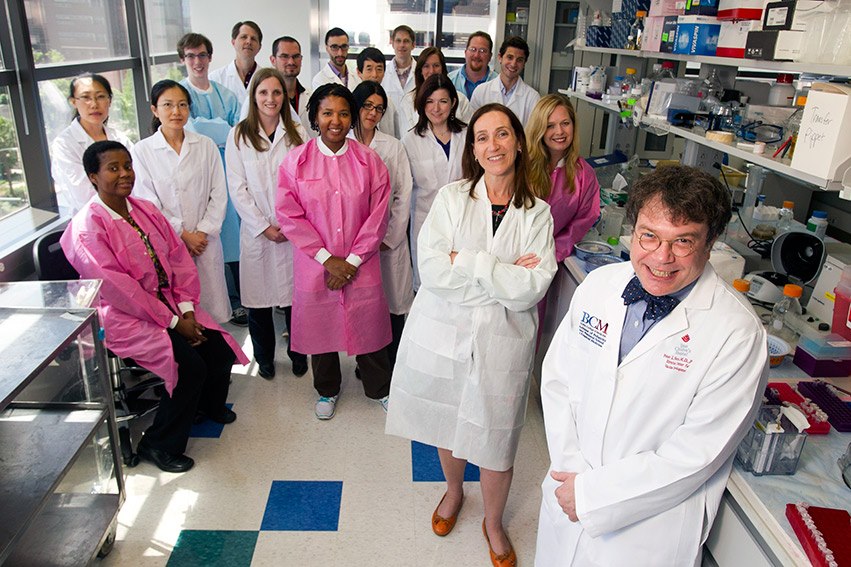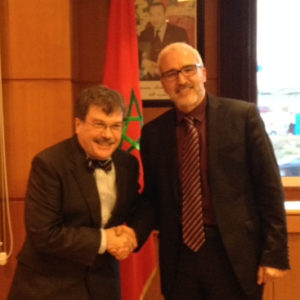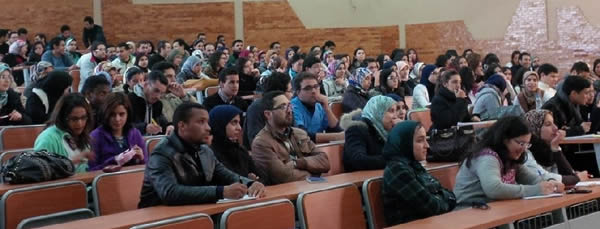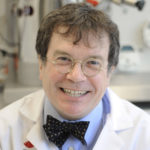My Activities as United States Science Envoy
By Peter Hotez, M.D. Ph.D.
Last December I was selected as one of four U.S. Science Envoys for the year 2015, along with Drs. Jane Lubchenco, University Distinguished Professor of Marine Biology at Oregon State University and former administrator of NOAA (2009-2013); Arun Majumdar, Jay Precourt Professor, senior fellow, Precourt Institute for Energy, Department of Mechanical Engineering, Stanford University, and former founding director of ARPA-E (2009-2012) and Acting Under Secretary of Energy (2011-2012); and Geraldine Richmond, Presidential Chair and Professor of Chemistry at the University of Oregon and founder of the COACh for women scientists and engineers [1].
The U.S. Science Envoy Program was first proposed in April 2009 by Sen. Dick Lugar who praised American supremacy in the sciences and technology, correctly observing how our country is widely admired for its scientific achievements even by nations unsupportive of our foreign policies [2]. Subsequently in June President Obama made a historic speech in Cairo, Egypt in order “to seek a new beginning between the United States and Muslims around the world” [3], later followed by Secretary of State Hillary Clinton’s announcement in November 2009 in Marrakesh, Morocco that she will send prominent scientists to travel to Organization of Islamic Cooperation (OIC) countries for “scientific and technical collaboration” [2]. The first three U.S. Science Envoys selected were Drs. Elias Zerhouni (born in Algeria), former NIH Director; Bruce Alberts, former director of the National Academy of Sciences; and Ahmed Zewail (born in Egypt), a Caltech professor and Nobel Laureate [2]. The envoys are chosen jointly by the U.S. State Department and White House Office of Science and Technology Policy (OSTP).

The Sabin Vaccine Institute and Texas Children’s Hospital Center for Vaccine Development team at National School of Tropical Medicine, Baylor College of Medicine.
Over the last six years a total of 13 U.S. Science Envoys have been named, including four in this current class. Each of us has a unique expertise and role, including two envoys in 2015 focused on climate change. My interest and passion is in the area of vaccine development for neglected diseases. I head the Sabin Vaccine Institute and Texas Children’s Hospital Center for Vaccine Development at Baylor College of Medicine where we are developing a portfolio of six vaccines, including new vaccines for hookworm infection and schistosomiasis now in clinical trials. Our vaccines are developed in the non-profit sector and typically are of less interest to major pharmaceutical companies because they primarily target diseases of the extreme poor living in low- and middle-income countries. A component of our external outreach activities include capacity building in so-called “innovative developing countries” where there is a sound biotechnology infrastructure, despite severe poverty and endemic neglected infections [4].

Peter Hotez with Omar Assobhei, President of University Sidi Mohamed Ben Abdellahh.
In a March 2015 letter in SCIENCE magazine, I wrote how the Middle East and North African (MENA) region is now highly vulnerable to neglected and emerging infectious diseases arising out of the conflicts in ISIS-occupied Syria, Iraq, and Libya, as well as Yemen [5]. Some of these include MERS coronavirus infection, leishmaniasis, and schistosomiasis. I’ve pointed out previously how Ebola emerged in Guinea, Liberia, and Sierra Leone out of a post-conflict setting associated with breakdowns in health systems and infrastructure, urbanization, human migrations, and deforestation, with similar conditions now in play in conflict-ridden MENA zones [5]. Simultaneously the MENA region has a dearth of regional vaccine development capabilities and is highly vulnerable to diseases that the major pharmaceutical companies will not likely target for vaccines, such as those I highlighted above. Accordingly, we are proposing to develop vaccines jointly between research institutions in selected MENA countries and our vaccine institute in Houston. Since the beginning of the year, I have visited Morocco and Saudi Arabia, countries that were chosen on the basis of their potential to develop vaccine infrastructure together with alignment of U.S. strategic interests.

Approximately 250 medical students and faculty attend Hotez’s lecture at University Sidi Mohamed Ben Abdellahh. He received a ‘rock star’ welcome with applause and cheers as he entered the lecture.
It’s an exciting opportunity for me to work with the State Department, White House OSTP, and the U.S. Embassies in Morocco and Saudi Arabia. I have been deeply impressed with the expertise and depth of knowledge of my colleagues in the U.S. Government, as well as some amazing scientists in Morocco and Saudi Arabia. I am hopeful there could be some important deliverables in terms of developing new and life-saving vaccines, together with joint capacity building for science and technology in the MENA region. Simultaneously I feel privileged to be asked to provide service to our country!

Peter Hotez, M.D., Ph.D., is a member of TAMEST. He is an elected member of the Institute of Medicine (officially National Academy of Medicine on July 1, 2015) and is the Dean of the National School of Tropical Medicine at Baylor College of Medicine, Texas Children’s Hospital Endowed Chair of Tropical Pediatrics, president of the Sabin Vaccine Institute, University Professor of Biology at Baylor University, and Baker Institute Fellow in Disease and Poverty at Rice University. The views herein are those of Professor Hotez and not necessarily those of the U.S. State Department or White House.
1. http://www.state.gov/r/pa/prs/ps/2014/12/234682.htm
2. http://kokomoperspective.com/news/obama-administration-adopts-lugar-science-envoy-program/article_335c05be-c8bd-11de-a130-001cc4c002e0.html
3. https://www.youtube.com/watch?v=NaxZPiiKyMw
http://www.nytimes.com/2009/06/04/us/politics/04obama.text.html?pagewanted=all&_r=0
4. http://www.sciencemag.org/content/309/5733/401.long
5. http://www.sciencemag.org/content/348/6232/296.2.long

